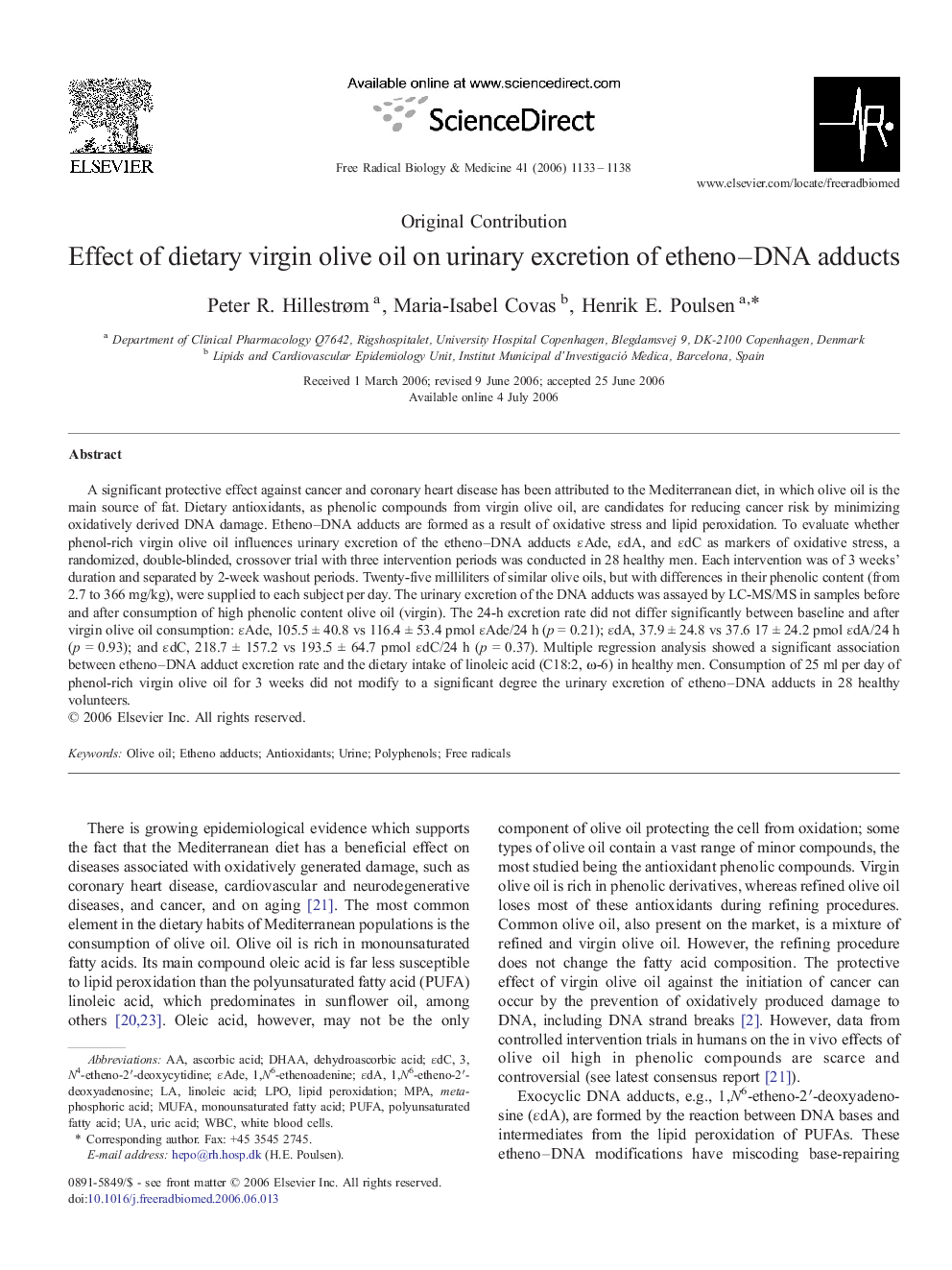| Article ID | Journal | Published Year | Pages | File Type |
|---|---|---|---|---|
| 1911997 | Free Radical Biology and Medicine | 2006 | 6 Pages |
A significant protective effect against cancer and coronary heart disease has been attributed to the Mediterranean diet, in which olive oil is the main source of fat. Dietary antioxidants, as phenolic compounds from virgin olive oil, are candidates for reducing cancer risk by minimizing oxidatively derived DNA damage. Etheno–DNA adducts are formed as a result of oxidative stress and lipid peroxidation. To evaluate whether phenol-rich virgin olive oil influences urinary excretion of the etheno–DNA adducts ɛAde, ɛdA, and ɛdC as markers of oxidative stress, a randomized, double-blinded, crossover trial with three intervention periods was conducted in 28 healthy men. Each intervention was of 3 weeks’ duration and separated by 2-week washout periods. Twenty-five milliliters of similar olive oils, but with differences in their phenolic content (from 2.7 to 366 mg/kg), were supplied to each subject per day. The urinary excretion of the DNA adducts was assayed by LC-MS/MS in samples before and after consumption of high phenolic content olive oil (virgin). The 24-h excretion rate did not differ significantly between baseline and after virgin olive oil consumption: ɛAde, 105.5 ± 40.8 vs 116.4 ± 53.4 pmol ɛAde/24 h (p = 0.21); ɛdA, 37.9 ± 24.8 vs 37.6 17 ± 24.2 pmol ɛdA/24 h (p = 0.93); and ɛdC, 218.7 ± 157.2 vs 193.5 ± 64.7 pmol ɛdC/24 h (p = 0.37). Multiple regression analysis showed a significant association between etheno–DNA adduct excretion rate and the dietary intake of linoleic acid (C18:2, ω-6) in healthy men. Consumption of 25 ml per day of phenol-rich virgin olive oil for 3 weeks did not modify to a significant degree the urinary excretion of etheno–DNA adducts in 28 healthy volunteers.
